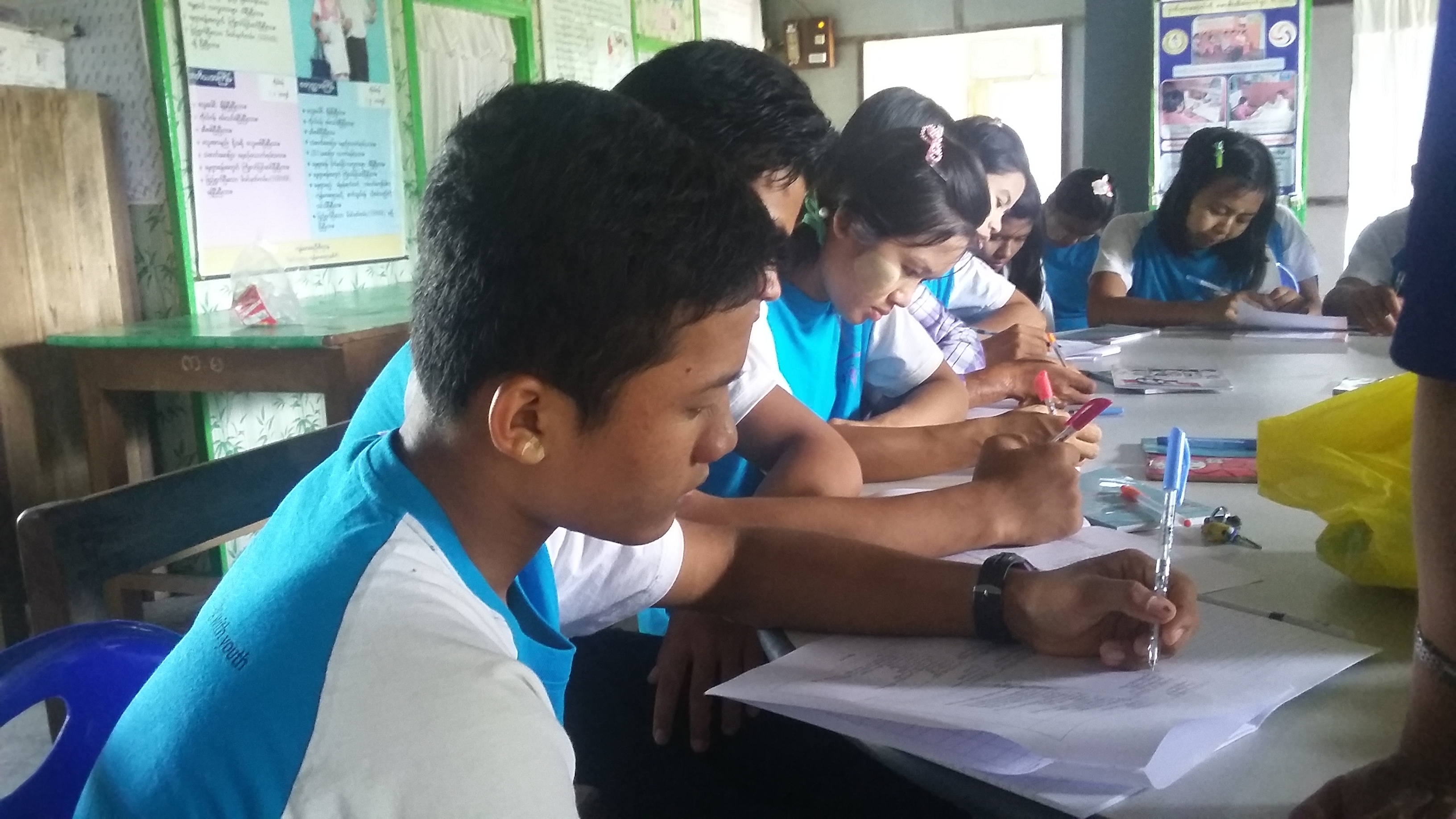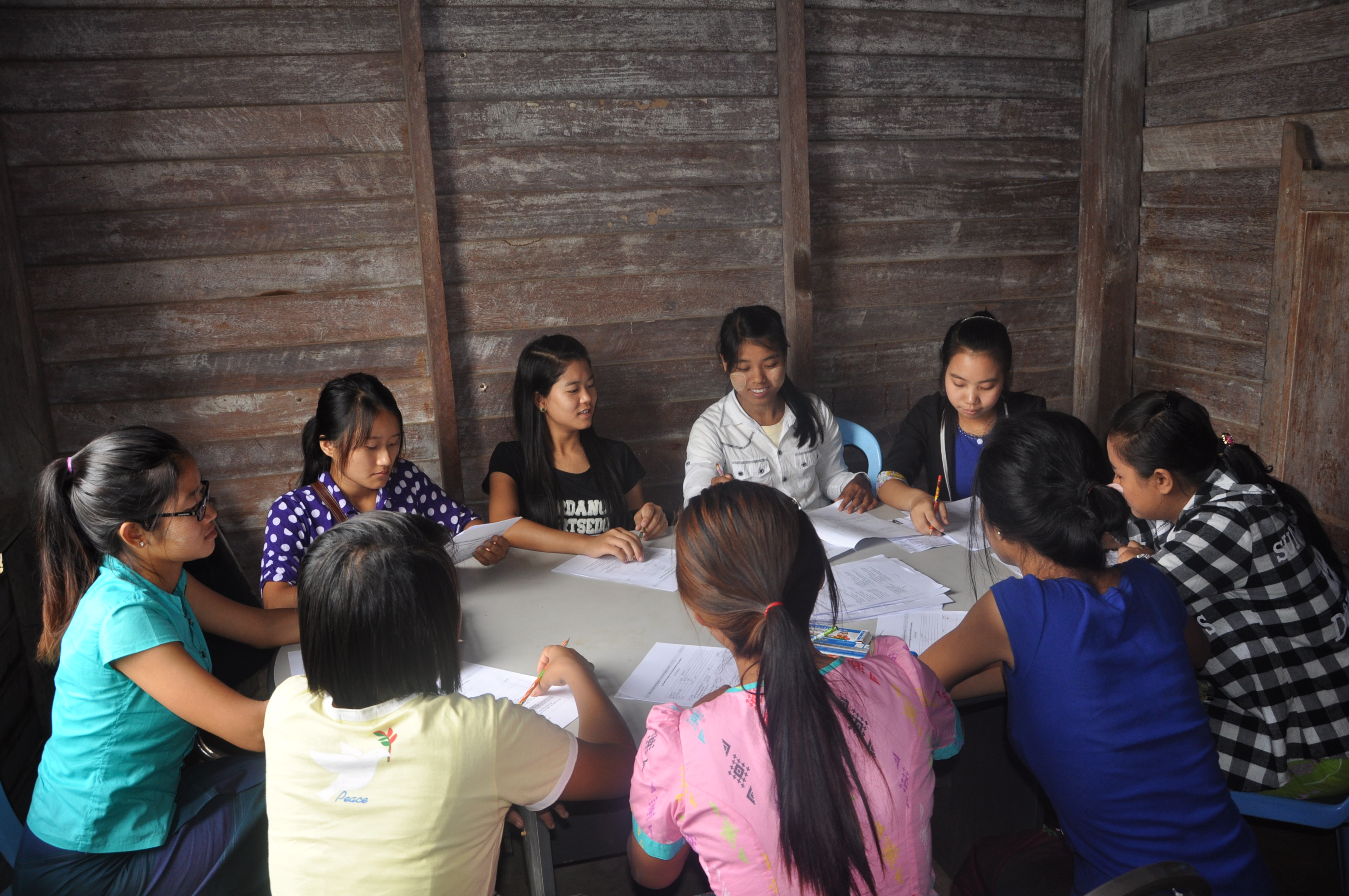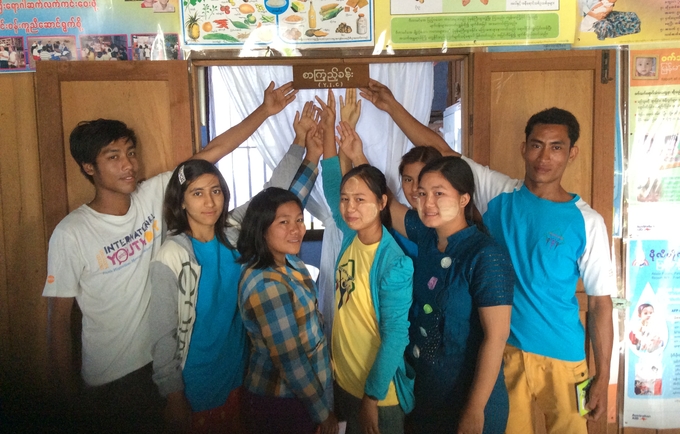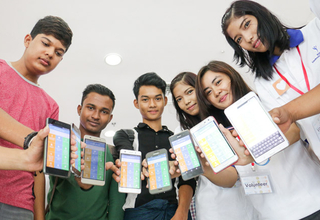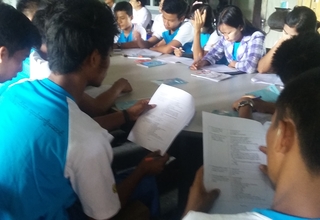UNFPA is currently conducting an in-depth review of its support to rural youth in Youth Information Corners (YICs). These YICs, set up by UNFPA together with the Central Health Educational Bureau, are based in rural public health facilities. They have been running for about ten years in different parts of Myanmar. They serve as a centre for outreach activities and peer education sessions on sexual and reproductive health and other issues related to the health of youth.
Shan North, one of the project areas, shows the diversity of challenges for the operation of YICs. Increased mobility of youth in their search for job opportunities, as well as issues of drug abuse and gender-based violence pose challenges for youth in rural areas. However, initial findings from the review indicate that a non-discriminatory approach is ensuring results-based management of the YICs and that empowerment of young people can create positive change for development.
As part of its support to rural youth in Myanmar, UNFPA also established Community Support Groups (CSGs), to support UNPFA trained youth volunteers in planning and implementing outreach activities and peer education sessions on sexual and reproductive health. Members of CSGs are usually senior members of the local community who have been selected based on their commitment to community development, regardless of gender.
One of the findings from the review of the YICs is that YIC youth in different parts of the country need an increased amount and updated IEC materials in order to cope better with the challenges of transition to democracy that is happening in the country. According to young people supporting YIC activities, visual materials would increase the efficiency and impact of their outreach activities. The added benefit of more visual material is that sexual and reproductive health information would be more easily understood by youth with low literacy levels. Further recommendations of the review will be available after the results have been analyzed and these will inform the new UNFPA strategy on rural youth that will be implemented from 2016 onwards.
